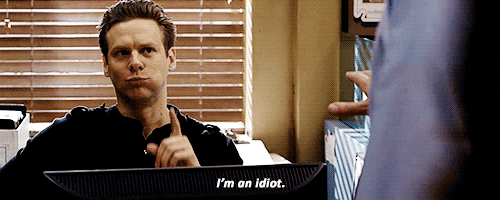Happy Monday, friends and fronds! If you are in the southern hemisphere, this is an appropriately spooky time of year for reading Frankenstein; if you are in the northern one, the sunshine will save you from sinking into Victorian melancholy as you read along. To refresh your memory, you can enter our Frankenstein giveaway multiple times by posting or tweeting about the readalong wherever you do your social media! Here’s that giveaway:
Now let’s dive in. This metaphor works brilliantly because the first part of the book is all about a sea voyage to explore the Arctic wilds. I am a metaphor genius. Y’all are surely thrilled to have me hosting this readalong.

Having read the foreword by editor Leslie Klinger, I have determined that all the Romantics were — as I suspected — dickholes. Mary Shelley seems better than some of them but not like, better better. She’s pretty mean to Claire/Clara/Clara Mary Jane, her stepsister, even if okay, I can see how it would be annoying to have a younger stepsister you and your husband had to support while she ran around getting pregnant by Lord Byron, as you yourself were having miscarriages and writing Frankenstein and stuff. However, she was nowhere near as terrible as terrible Percy Shelley, who married this poor girl called Harriet, probably knocked her up, criticized her for not feeling sorry enough for him, cheated on her with Mary Shelley, accused her of cheating on him, suggested that she and Mary Shelley both bang him, and eventually ditched her in favor of Mary. What a cad. I’m glad he drowned.
Anyway, so this edition of Frankenstein uses (gasp!) the 1818 text, which was the original. In 1831, Mary Shelley heavily revised it, partly because her ideas about the world had changed, and partly to make it more, like, family friendly. So far the biggest thing I have noticed about the changes to the 1831 edition (The New Annotated Frankenstein tells you everything that changed for that edition) is that it’s way gayer. Here’s a sentence that got added to the later edition:
Sometimes I [the narrator, Robert Walton] have endeavored to discover what quality it is which [Frankenstein] possesses that elevate him so immeasurably above any other person I ever knew. I believe it to be an intuitive discernment, a quick but never-failing power of judgment, a penetration into the causes of things, unequalled for clearness and precision; add to this a facility of expression and a voice whose varied intonations are soul-subduing music.
Suuuuuuuuuuuuuuuuuure.
Anyway, so the deal is that Robert Walton is going on a polar exploration expedition, which took me by complete surprise. Hands up everyone here who knew that the framing device for Frankenstein was about polar exploring? Oh, everyone but me already knew that? Cool. Cool.

Walton catches a glimpse of a giant on a dogsled, and shortly after that, he picks up Victor Frankenstein, who is frozen nearly to death and keeps talking about a final mission. Once he completes this mission, he says, his life will be over. Seeing that Walton is attempting a dangerous scientific feat (exploring the North Pole) in pursuit of glory, Frankenstein decides to relate his own, similar story of hubris.
In the first two chapters, we just learn a little bit about Victor Frankenstein’s family: He has an adoptive sister/cousin called Elizabeth, who gives to their mother the scarlet fever that kills her. He has a friend called Clerval who has a poetical soul. He studies alchemy texts independently and is crushed to learn that modern science has what he considers to be less exciting ambitions. Mary Shelley wrote of these chapters:
If there were ever to be another edition of this book, I should rewrite these first two chapters. The incidents are tame and ill-arranged — the language sometimes childish– They are unworthy of the rest of the narration.
They’re fine! Give yourself a break, Mary!
Okay, so then chemistry is a lot of fun and Frankenstein is all in on science, and pretty soon he learns the secret of Life. He starts building an eight-foot-tall creepy person out of corpse parts that he gets from graveyards and slaughterhouses.

Disappointingly, we don’t get to hear the secret of Life. Frankenstein keeps it to himself, the greedy fucker. This is apparently because when he uses it on his creation, he immediately stops loving it. He runs away from it and bashes into his good pal Henry Clerval at the ?train station or something? IDK I wasn’t paying that much attention. And when he takes Clerval back to his house, the creature isn’t there, and he’s like “Oh good phew, it’s gone” and NEVER WORRIES ABOUT IT AGAIN FOR LIKE A YEAR AND A HALF.
I’m sure this will turn out fine. I’m sure he will not have cause to regret his scientific hubris and subsequent abandonment of the monster he created that will have no place in this cold cruel world.
How’s #TraLaFrankenstein going for y’all? Hit me up on Twitter, and/or drop a link to your first post below.